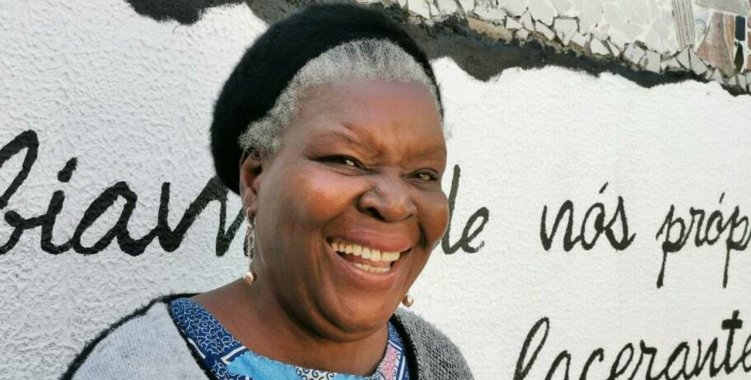Paulina Chiziane, who is in Angola, at the invitation of Angolan artists, was received by the Minister of Culture, Tourism and Environment, Filipe Zau, with whom she discussed aspects related to the culture between the two countries.
"The minister is an affable person, extremely cultured, a person who is very committed to this entire liberation process", said Chiziane.
According to the writer, African peoples were given a free land "because others died for it".
"Institutions have been created in our governments and these institutions are trying to do something, but, of course, who makes the revolution is not the government, it is its people, so being received as artists by a high dignitary of the government is a reason for great joy. and honored our presence here in Angola, we feel very welcome, we feel loved and together we are dreaming of a freer Africa, just like our ancestors dreamed of", he stressed.
For Paulina Chiziane, there is a new generation and, therefore, at the age of 66, she deals with young artists, most of them singers, some poets, "because it is necessary to create this bridge between the past and the future, it is necessary to leave a legacy somehow".
The novelist said that she went to Angola at the invitation of two young Angolan artists, the singer Yuri da Cunha and the thinker and 'rapper' Isidro Fortunato, friends with whom she has been working for a long time.
"One of my books that will be released here in Angola was set to music by a group of young musicians in Mozambique, because, for us Africans, the book is elitist, that is, only those who have the money to buy a book, those who attended a school, but the music, even if I don't have the money to pay for the music, if it's placed in the neighbor's house, the message gets through and I can hear it", he pointed out.
Therefore, she continued, at a certain stage of her career she chose to write texts that are now set to music by young Mozambican artists.
"Yuri da Cunha is a musician and who knows, maybe one day we will be able to work in partnership, me writing, he singing, although I would also like to sing", she said.
With Isidro Fortunato, however, there is an affinity, "which is the freedom of all Africans".
"All of us Africans have a common history of occupation, colonization, slavery, colonialism, imposition of the culture of the other, something that lasted centuries and today we resent it, because the new colonizer, on some occasions, is no longer the foreigner, but ourselves. and this due to the phenomenon of self-denial caused by five centuries of imposition of other cultures", he stressed.
According to the writer, the conversations with young people are also "about this path that the whole of Africa has to take to continue the liberation struggles".
"It is true that after independence our countries faced different civil wars, this in a way broke this circle of harmony that existed between peoples who speak Portuguese, who speak English and others who speak our languages, which are so many and are so beautiful," he added.
The phenomenon of globalization "has shaken a little more", according to Paulina Chiziane, "but it is necessary to continue to fight, using the ancestral strategy of communication".
"In the same way that our leaders communicated to achieve independence, we must also continue to fight for this liberation", she defended.
Regarding the Camões Award, Paulina Chiziane highlighted that in 33 editions "it was the first time that a person of black and Bantu skin received this award, and on top of that a woman": "This has a lot of meaning for all of us Africans".
"In one of my speeches, she said that, frankly, it was recognized that Luís de Camões came to Africa, taught us his language, we learned his language and we use it so well that we deserve an award," she said.
"This may be the time to invite Luís Camões to learn our languages, because the language is a heritage. If I learned Portuguese, why can't he learn mine?", he asked.
The writer's visit program foresees for this Thursday a 'live' lunch with Yuri da Cunha, where various aspects of the culture and presence of the writer in Angola will be addressed, with an event scheduled for Saturday and Sunday called " Reflection of Yuri da Cunha and Valter Ananás" with the writer.
On Monday, the program foresees a "Special Cultural Dialogue" with the writer, with several Angolan women, where it is intended to convey a message about the empowerment of African women.
Paulina Chiziane defends a bridge between past and future for the continuity of African liberation
The Mozambican writer Paulina Chiziane, Camões Prize in 2021, defended this Wednesday, in Luanda, that it is necessary to create the bridge between the past and the future, leaving the legacy to the younger generations for the continuity of the African liberation process.







